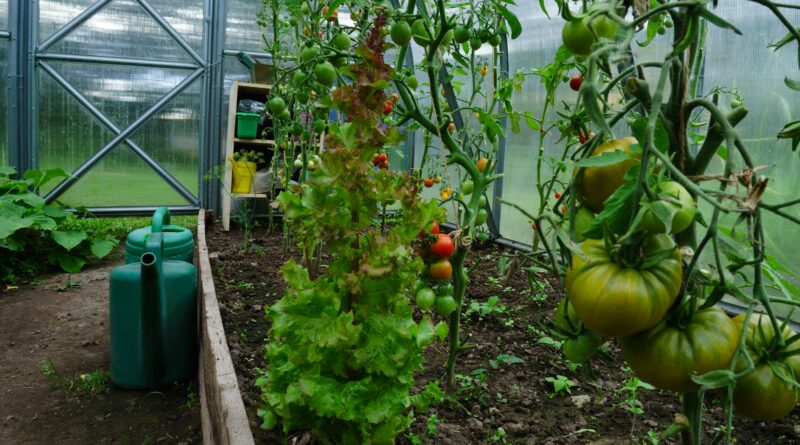Sustainable Living: How Eco-Friendly Choices Benefit Your Health?
The Turning Point: Maya’s Awakening
Maya was 38, an advertising executive in Mumbai whose life unfolded with the precision and velocity of a metronome set too fast. Her days began with caffeine and ended in a kind of digital haze, her attention parceled out across screens and schedules, campaigns and client calls. The city, with its perpetual hum and smog-laced skyline, became less a place than a background blur—one she rarely paused to consider. It was only when her body, that faithful servant so long ignored, began to protest—first with persistent migraines, then with the ominous approach of hypertension and nights devoid of sleep—that she was forced to listen.
It was almost by accident, as these moments often are, that she found herself attending a workshop on sustainable living—an experience she described not as educational but as quietly revelatory. She began to live differently: food became organic, plastics disappeared from her kitchen, her apartment bloomed with green, and her commute, at least twice a week, was made on two wheels, not four. Three months later, Maya spoke of a shift not merely in health but in perception. Her mornings came lighter, her thoughts clearer. In choosing to live gently upon the Earth, she had, perhaps unknowingly, begun to live more gently with herself.
This story might sound idealistic, but it illustrates a deeper truth that science increasingly validates: How eco-friendly choices benefit your health goes beyond environmental impact—it’s deeply personal and holistic.
Cleaner Living Spaces, Clearer Lungs
One of the most immediate health benefits of sustainable living is cleaner air within your home. Common household items—from synthetic carpets to chemical-based cleaners—release volatile organic compounds (VOCs) that can trigger allergies, headaches, and even respiratory illnesses. Switching to eco-friendly alternatives significantly reduces indoor air pollution.
Using natural cleaning products, installing air-purifying plants like spider plants or peace lilies, and avoiding synthetic fragrances can drastically improve air quality. Furthermore, sustainable homes are often designed for better ventilation and natural light, both of which contribute to respiratory health and mental well-being. In the long run, choosing eco-friendly interiors isn’t just about aesthetics; it’s about breathing easier—literally.
A Plate Full of Wellness: The Organic Advantage
There is something quietly profound—almost reverential- in the act of choosing what we place on our plates. Organic farming, by its very ethos, eschews the toxic armamentarium of pesticides and GMOs—substances which, we have observed, often leave behind more than residues; they leave trails in the endocrine system, the liver, the nervous tissue. There is health, too, not just in the absence of harm, but in the presence of richness—organic produce, it turns out, often carries a denser payload of antioxidants, those curious molecular sentinels that guard against cellular inflammation.
- Reduced Exposure to Harmful Chemicals: Organic farming avoids synthetic pesticides, herbicides, and GMOs, minimizing the risk of chronic diseases and hormonal imbalances.
- Higher Nutritional Value: Organic fruits and vegetables often contain more antioxidants, which help combat inflammation and oxidative stress.
- Gut and Immune Health: Eating local and seasonal produce supports digestive balance and strengthens the immune system.
- Lower Environmental Impact: Choosing local foods reduces emissions from long-distance transportation, lowering your carbon footprint.
- Heart Health and Weight Management: Incorporating plant-based meals into your diet can help improve cardiovascular health and support healthy weight management.
Movement with a Mission: Active Transportation
Using bikes or walking instead of driving has multiple health benefits. Not only does it reduce your carbon emissions, but it also builds physical fitness, improves cardiovascular function, and enhances mental clarity. Incorporating active transportation into daily life is a double win—for the Earth and your body.
Public transport, too, offers indirect health benefits. It often involves walking to and from stations, and significantly reduces urban air pollution when used collectively. By reducing your dependency on personal vehicles, you become part of a larger movement contributing to cleaner skies and healthier lungs.
Mental Peace Through Minimalism
Sustainability isn’t only about the environment—it’s also about mental clarity. Cluttered homes often reflect cluttered minds. Sustainable living promotes minimalism, encouraging individuals to buy less and live more consciously. This shift has been proven to reduce stress and anxiety levels.
When we invest in quality over quantity, prioritize reusable items, and engage in mindful consumption, we build a home and a mindset of intentional living. In the words of psychologist Carl Jung, “People become what they consume.” So why not consume sustainably—for your inner peace and emotional well-being?
Read More about Minimalistic Living
The Power of Minimalism: Decluttering Your Space, Decluttering Your Mind
Water Conservation and Clean Habits
Another area where how eco-friendly choices benefit your health becomes evident is water usage. Reducing water waste and choosing sustainable water filtration systems helps maintain clean water sources, reducing risks of contamination.
Moreover, being aware of what goes down our drains—chemicals, oils, non-biodegradable items—ensures that our community’s water remains uncontaminated. This contributes directly to fewer waterborne illnesses and better hygiene practices.
Skin Deep Sustainability: Eco-Friendly Beauty
The beauty industry is notorious for its environmental impact and chemical-laden products. Switching to eco-conscious personal care items not only reduces plastic waste but also limits exposure to toxins that affect hormonal balance and skin health.
Many eco-friendly beauty products use natural ingredients like aloe vera, coconut oil, or neem, which are not just safe but also nourishing. Avoiding sulfates, parabens, and synthetic fragrances leads to healthier skin and fewer dermatological issues. It’s a simple yet powerful way to take control of your well-being.
Tips & Tricks for Everyday Eco-Healthy Living
Here are some actionable tips to integrate sustainability into your routine while boosting your health:
- Switch to reusable containers to reduce BPA exposure.
- Choose natural cleaning products like vinegar, baking soda, or castile soap.
- Eat seasonal produce from local farmers’ markets.
- Practice energy-efficient cooking like pressure cooking and meal prepping.
- Install a home air purifier or grow indoor plants.
- Compost food waste for a cleaner kitchen and better waste management.
- Choose bamboo or wooden toothbrushes instead of plastic.
- Invest in a water filter instead of buying bottled water.
- Walk or cycle short distances instead of using a car.
Each of these tips contributes directly to the broader question: How eco-friendly choices benefit your health?—both through physical outcomes and emotional rewards.
The Science Behind the Shift
Scientific studies increasingly support what conscious consumers already know intuitively. According to the World Health Organization, air pollution kills 7 million people annually. Much of this is preventable through sustainable urban policies and personal choices.
Similarly, the American Journal of Clinical Nutrition found that diets lower in red meat and higher in plant-based foods not only reduce carbon footprints but also lower mortality rates. Meanwhile, research in Psychology Today links minimalism and mindful consumption with reduced anxiety and depression.
Why It’s a Personal Revolution?
Sustainable living often begins with a single step—a cloth bag, a bicycle ride, a switch to metal straws. But it soon evolves into a lifestyle that redefines how we view our relationship with the environment and our own bodies. When we reduce our ecological footprint, we simultaneously uplift our personal health.
The recurring question—How eco-friendly choices benefit your health?—is not just rhetorical. It’s a call to action. Each eco-conscious decision is an investment in your future well-being. Whether it’s better digestion, cleaner air, fewer toxins, or a deeper sense of calm, the results speak for themselves.
Conclusion: Sustainability is Self-Care
In a world riddled with pollutants, both environmental and emotional, sustainable living offers a beacon of hope. It aligns your health with the planet’s needs and transforms routine habits into healing rituals. As Maya discovered, the journey toward sustainability is ultimately a journey back to oneself.
So the next time you’re choosing between a plastic bottle or a reusable flask, fast food or fresh produce, synthetic cleaner or lemon-vinegar spray—remember, you’re not just helping the Earth. You’re healing yourself.
Get updates and read additional stories on the Health Orbit Fan Page.
For Guest posts, Sponsored posts and other details, please click ‘Contact Us’ page.




